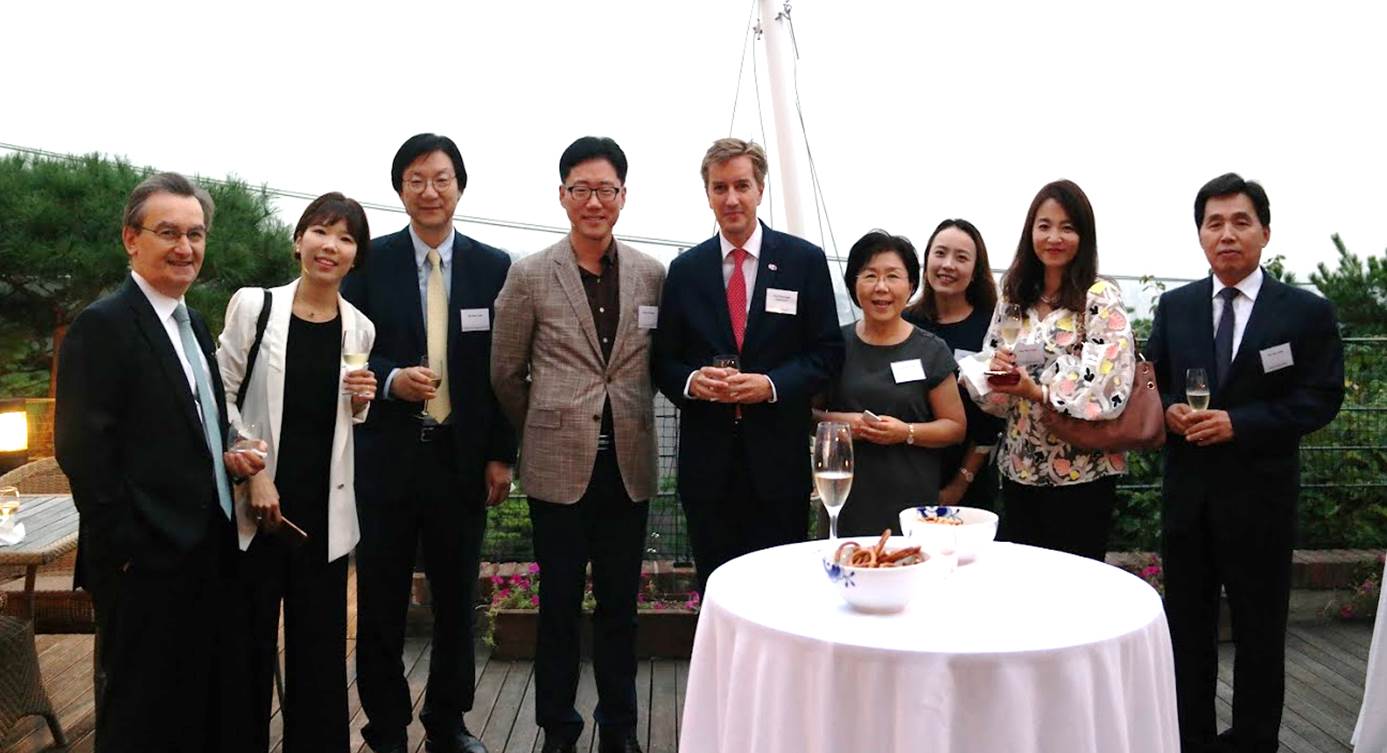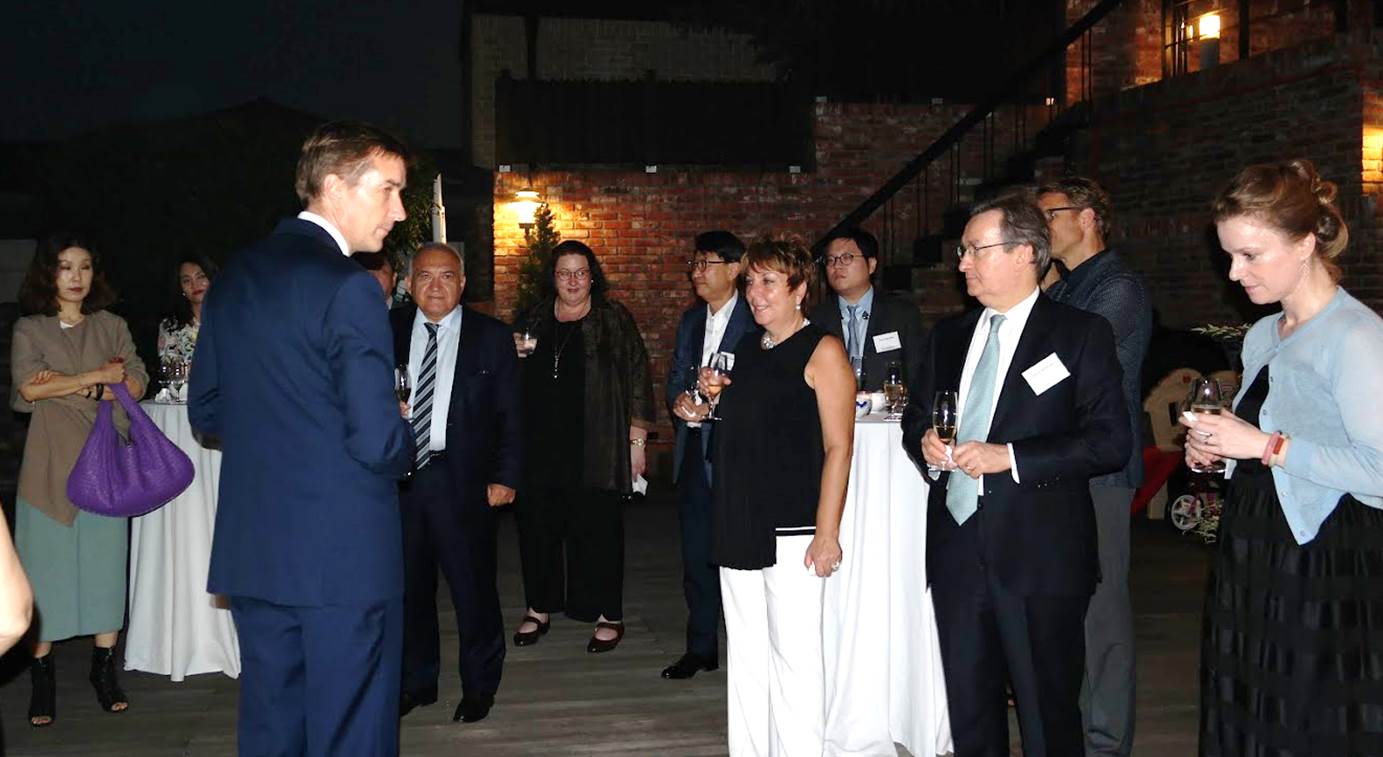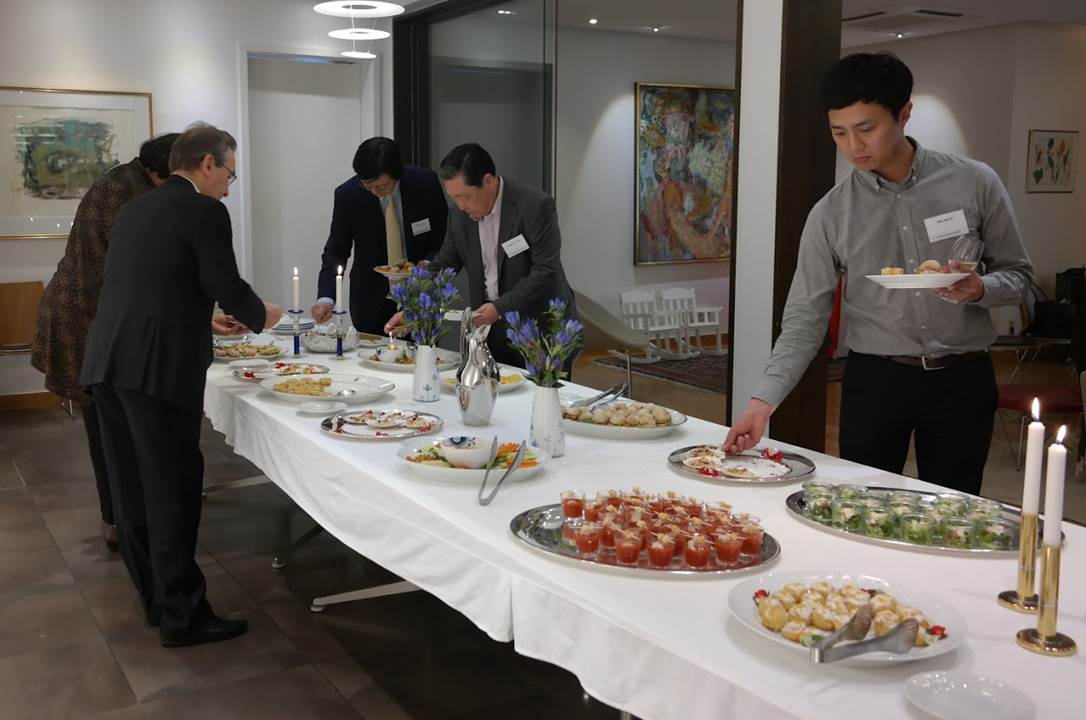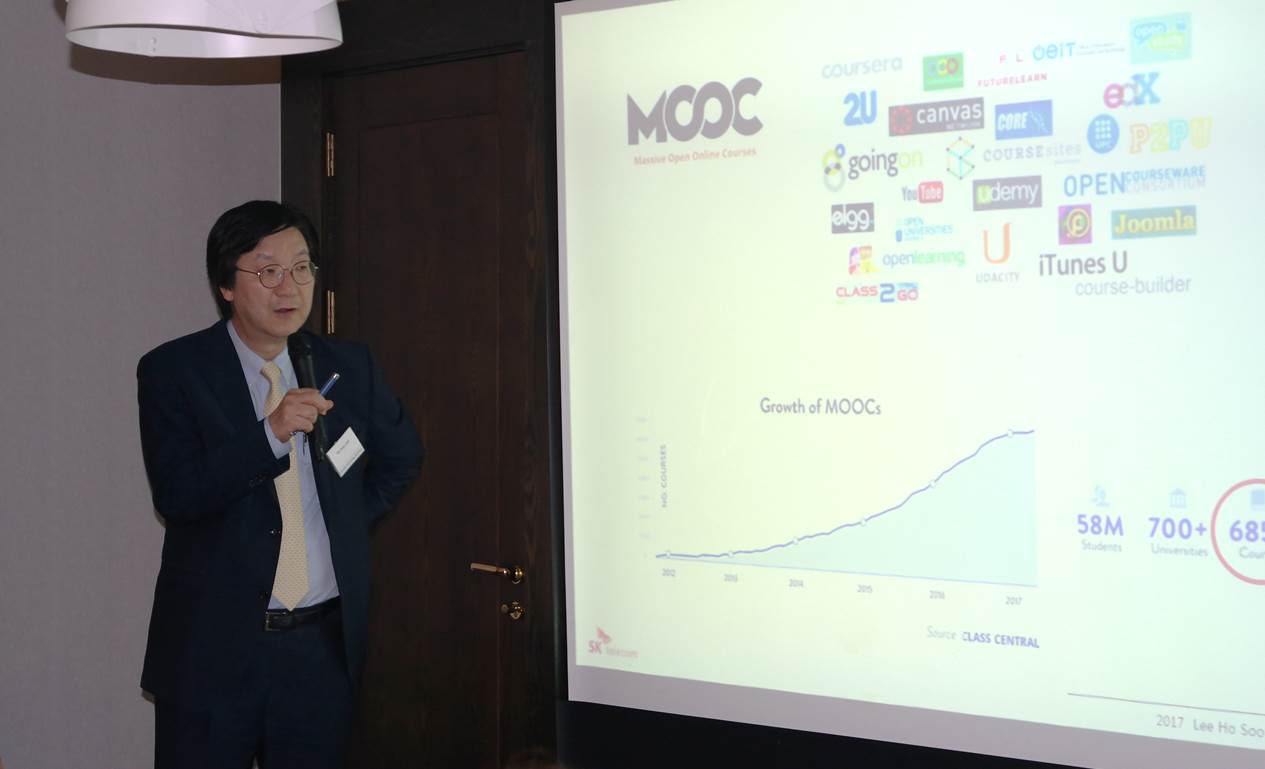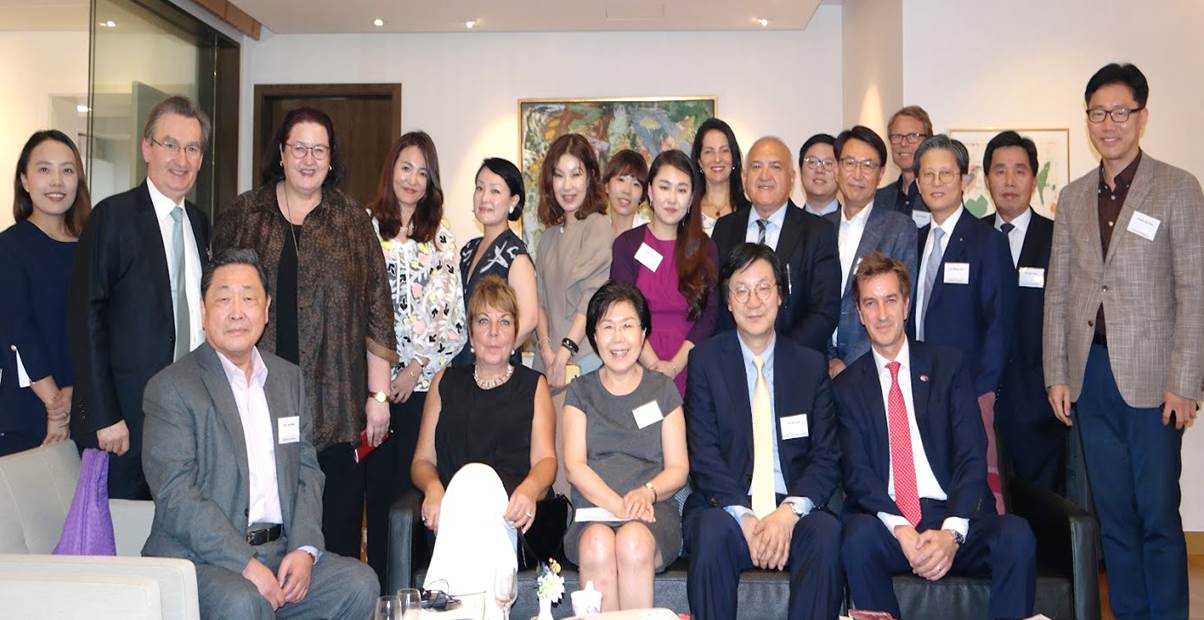
Home > CICI News > What’s New

| Title | Korea CQ - Epilogue of Lecture on 'Interesting ICT Issues in 2017' | ||||
|---|---|---|---|---|---|
| Posted by | webmaster | Hit | 19269 | Date | 2017.09.28 |
| Files | |||||
Dear Korea CQ members,
Q) Won Ho Park, Chairman of DI Corpration; If ‘Jobs’ are all changed to ‘Tasks’ in the future, it will mean everyone will be a temporary employee. Will this be acceptable in our society? A) Ho Soo Lee, President of SK Telecom; President of SK Telecom‘s ICT Strategy; Of course, not immediately. I do not believe this change will suddenly take place within 5 years. It will take a very long time. However, I believe that in the future, the classification of ‘permanent’ and ‘temporary’ employees will disappear. There will only be ‘Positions’ for certain ‘Tasks’ left. Q) Haewon Park, Caudalie Korea Country GM; With the development of the GIG industry, I believe that the overall income of people will at least temporarily decrease. Although there is an increase in production, if income is reduced, people will not be able to consume these products. This is why there are talks of ‘universal basic income’ for people. However, without any consumption taking place, can there be any profits made that will allow for a ‘universal basic income’ for people. A) Ho Soo Lee, President of SK Telecom; GIG economy will not suddenly take over our society in a day. Take ‘Uber’ for example. Some Uber drivers already have a main job, and drives for Uber on the side, maybe just 2 hours a day, or only on the weekends. You could say these drivers are ‘temporary employees.’ These drivers requested that Uber provide insurance for them. At first, many said that this was absurd. Eventually, though, Uber met their demands. What we can infer from this is that we should change accordingly to the changes in society. Q) Didier Beltoise, President of Cs; Many changes are being made in the hospitality area these days as well; young people search and book hotels on their smartphones, and at the hotel, robots can carry their luggage and such. In the future, will people need ‘personal interactions’ with each other? A) Ho Soo Lee, President of SK Telecom; I think peoples’ preferences will greatly diversify in the future. If you see the companies I gave examples with in the ‘Sharing Economy,’ all of them have different rules. For example, in ‘CouchSurfing,’ users can invite others, and stay together with them. This is not possible with ‘Airbnb.’ So, users can choose the service they wish to use depending on their preference. These days, there are many restaurants catering to ‘honbapjok,’ a new word describing people who eat meals alone. One such restaurant I saw left a strong impression on me. The place was decorated like the inside of an airplane’s business class area. There are comfortable chairs that are all divided with partitions, each with a small tray where people can place their food, and a TV for each seat as well. This is for the extreme ‘honbapjok.’ I believe there will be many more cultures made such as this. Q) Soyoon Park, Representing Researcher of Lemonade & Co.; Jeff Bezos, the founder of Amazon, said to search for things that people like, that people do not wish for to change. I think it is possible to predict what these are in the traditional line of business. What do you believe it to be, and what industries and fields do you believe will survive in the future? A) Ho Soo Lee, President of SK Telecom; I believe it is food, clothing, and shelter – the necessities of life – as well as things that give people ‘comfort.’ Comfort here not only mean ‘convenience’ but it includes ‘speed’ as well. Quick deliveries and precisely finding what I want. We can see from products such as Amazon’s AI speaker ‘Echo’ and ‘Dash,’ which lets the user to place their order, pay, and receive the product all with just one click, that Jeff Bezos’ creations are focused on what people find ‘comfortable.’ Increase in production means increase in income and leisure time – which will naturally lead to more ‘needs.’ This need can be entertainment, food, sightseeing, or more. Q) Sumi Jang, President of Bysumi; I believe that companies such as ‘Airbnb’ and ‘Amazon’ was realized due to ‘reasonable reliance.’ Many are talking of ‘blockchain’ being the next step. Will this create a new world where we use things that are already ‘trusted’? A) Ho Soo Lee, President of SK Telecom; I believe blockchain technology will be spread more widely. The world wide web (www) was created in the early 1990s, and at the time its main purpose was to share information. With the growth of e-commerce since 1995, money transactions were made online, so security and privacy of one’s personal information was needed. This is why we had to install so many active x and programs. Blockchain gets rids of this with one blow. * Blockchain is described as a ‘public ledger’ Q) Arslan Hakan Okcal, Turkish Ambassador; You talked about the many rapid changes that will happen in 10-20 years. On the other hand, there are some countries that are not so well off economically. These countries are not able to keep up with the fast technological changes of the world. Will the development of technology be able to help these countries? A) Ho Soo Lee, President of SK Telecom; This is a very difficult question. Honestly, I do not know, as that is beyond my capacity. Up to now, my talk was based on Korea and some of the leading countries. Q) Clare Fearnley, New Zealand Ambassador; You’ve spoken in terms of new jobs being created. In some parts of the world, people are beginning to experiment with a ‘post-job world,’ where all of this change leads us to a different environment where people are paid a basic income which comes from the profit of all the goods and services that no longer require human touch. This is a sort of ‘dream world’ in the future. You’ve spoken of different sorts of jobs; can you see a different sort of future? A sort of absolute transformation, away from job? A) Ho Soo Lee, President of SK Telecom; I’ve talked to a few specialists who thought of this very deeply – and even they could not give a clear answer. It is very difficult to predict. However, there will be jobs that will not disappear; for example those strong in the entertainment field, and also the ICT field. Q) Thomas Lehmann, Danish Ambassador; How can we who work in the government, and also society prepare for the changing that is to come? For example, in my country, we started a new initiative and recently appointed an Ambassador for Technology. This is because we believe the changes will impact foreign security problems, and also because we as diplomats need to work differently now – not only seeking relationships with the government and institutions, but also the tech-companies. We need to know the current affairs, and how we can adapt our policies as a consequence. Korea is a great ICT country, but Korea is also a very much a ‘manufacturing’ country in the old-fashioned way. How well is Korea prepared for the changes that are coming? A) Ho Soo Lee, President of SK Telecom; The answer is very well known – it can be seen in all of Korea’s newspapers these days. Korea, at this moment, is not well prepared. Of course, the government, individual companies, research institutions and colleges are all trying very hard. However, what we need is a very orchestrated effort. Yesterday, the government announced the 1st committee on the Fourth Industrial Revolution. I think we need many more such committees. I also hope regulations on the ICT loosens. Q) Jai Wook, Lee Attorney at Yulchon LLC; Many say that Korea’s ICT regulations are very strong. As a person working in the field of ICT today, what are your opinions on the regulations in Korea? A) Ho Soo Lee, President of SK Telecom; We actually run into regulations quite often. That does not mean that other countries’ regulations are slack. Some countries are strong regulations, while others are more relaxed. The problem is the new ICT field is largely in the two forms ‘big data’ and ‘cloud,’ and the regulations regarding these two are very strong. In my company, we often run into regulation problems when trying to begin a new project. When this happens, I say, let’s plan under the assumption that there are no regulations. Then, after listing all our results, we see which regulations blocks each one. In Korea, the some regulations the ICT field often runs into are the Privacy Act, Communications Privacy Act, and Location Privacy Protection Act. We then take these results to the government and negotiate, giving specific details on what we wish to achieve. Our projects don’t always go through, and even if they do, it can takes months to actually happen, but this may be a gateway we must pass through. |
|||||











